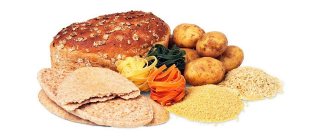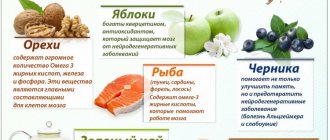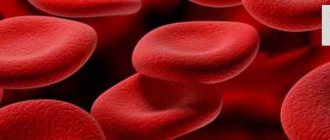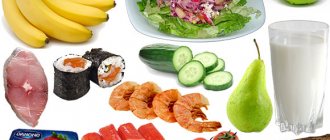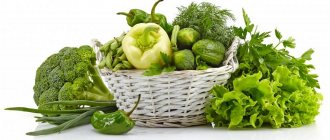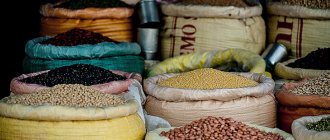Cholesterol is a complex substance. Until recently, nutritionists and cardiologists were afraid of it, they said that it leads to heart disease, clogs blood vessels, forming plaques. Therefore, many refused fatty foods that contain cholesterol and adhered to low-fat diets. How did you harm your health? Since in fact, cholesterol ensures the stability of cell membranes, participates in the synthesis of steroid and sex hormones, vitamin D and bile acids, and protects red blood cells from harmful effects.
Despite all the benefits, the harm from high cholesterol is quite real.
Bad and good cholesterol
These names are rather arbitrary, since low-density lipoproteins containing bad cholesterol have their own functions and beneficial properties. True, LDL benefits only when they are within normal limits (for example, they support the functioning of the immune system), but if there is too much “bad” cholesterol, then it poses a danger to the cardiovascular system. High-density lipoproteins, which contain “good” cholesterol, on the contrary, prevent heart and vascular diseases.
Threat to blood vessels. The dangers of high cholesterol Read more
Risk factors for cardiovascular disease
Source: shutterstock.com
The likelihood of developing problems with the cardiovascular system increases in the presence of the following stressors (the more of them, the higher the risk):
- smoking;
- age (men after 45, women after 55);
- arterial hypertension;
- unfavorable family history (stroke/heart attack in a close relative: woman under 65, man under 55);
- heart attack or stroke in the past;
- IHD;
- overweight;
- diabetes mellitus, insulin resistance;
- addiction to alcohol;
- physical inactivity;
- diet with a predominance of animal fats and easily digestible carbohydrates;
- hypothyroidism;
- binge eating;
- liver pathology, accompanied by stagnation of bile.
Where do we get cholesterol from?
We often talk about the fact that fatty foods are rich in cholesterol and can greatly increase its levels in the blood. But the bulk of cholesterol is produced by the liver - about 75-80 percent. The rest is absorbed from the intestines. Therefore, diet can only slightly reduce the amount of cholesterol. But this does not mean that you can neglect your diet if you have high cholesterol. You will have to abstain from some foods, and eat others on a limited basis.
Foods rich in saturated fat, mainly animal products, are sources of bad cholesterol. But natural plant products and sea fish supply us with good cholesterol.
People with high blood cholesterol levels are advised to avoid foods high in cholesterol.
Important! In any case, you need to contact a specialist who will prescribe a special diet and, if necessary, prescribe medications that suppress cholesterol synthesis in the liver.
How does diet affect lipid profile?
The daily human diet contains foods that increase cholesterol levels in the blood. It is common to distinguish between bad (LDL) and good (HDL) cholesterol. In the second case, lipoproteins have a positive effect on the body and do not cause disease. Foods that may contain “bad” cholesterol primarily include meat, dairy products and eggs.
They are saturated with animal fats, which produce low-density lipids. At the same time, vegetable fats do not affect the level of lipoproteins, since they have a different chemical structure and contain sitosterol and polyunsaturated fatty acids. They, in turn, on the contrary, normalize fat metabolism.
Thus, the indication on the label of vegetable oil that it is cholesterol-free does not correspond to reality - it cannot be there. The largest amount of LDL is found in refractory meat fat. In addition, the risk of developing atherosclerosis when consuming certain foods is assessed depending on what type of fatty cholesterol acids predominates in them. These can be harmful saturated ones or anti-atherogenic unsaturated ones.
Thus, beef fat contains a large amount of solid unsaturated fats and is a product contraindicated in atherosclerosis. Eating beef every day can significantly increase blood cholesterol levels. At the same time, the increased content of lipoproteins in sea fish does not prohibit their consumption, since it is high in density and normalizes lipid metabolism in the body due to the content of polyunsaturated fatty acids.
No ads 1
Experts divide all products that contain low-density lipoproteins into 3 groups: those that need to be excluded from the diet (“red” list), those that do not significantly increase cholesterol (“yellow” list) and those that have a positive effect on fat metabolism in the body (“green” list). " list).
The list of foods containing cholesterol and information about its amount (mg) is presented in the table:
| Meat | Bird | Fish | Dairy |
| Beef (pulp) – 80 | Chickens – 80 | Krill – 1250 | Russian cheese – 1130 |
| Pork (pulp) – 70 | Goose – 110 | Horse mackerel – 400 | Dutch cheese – 510 |
| Lamb (pulp) –70 | Duck – 50 | Mackerel – 280 | Butter – 180 |
| Rabbit – 40 | Turkey – 210 | Carp – 270 | Sour cream 30% – 130 |
| Beef fat – 110 | Flounder – 240 | Mayonnaise – 100 | |
| Lamb and pork fat – 100 | Herring – 200 | Homemade cottage cheese – 60 | |
| Beef by-products – 150-3000 | Hake – 140 | Cream 20% – 80 | |
| Pork offal – 50-2000 | Pollock – 110 | Cow's milk – 10 | |
| Cod – 30 | Condensed milk - 30 |
For people with elevated LDL levels and those suffering from atherosclerosis, it is necessary to consume foods with the least amount of bad cholesterol. Dairy and curd products must be low-fat.
Diet can affect cholesterol levels
Some foods can reduce the content of unnecessary lipoproteins and remove them from the body. These include: fresh vegetables and fruits, juices from them, fish with a high concentration of polyunsaturated fatty acids, vegetable oils.
[node:field_similarlink]
What to exclude
If you have high cholesterol, you will have to give up fatty meats, pork, lard, butter - these are all foods that contain large amounts of cholesterol, especially “bad” cholesterol. It is generally recommended to limit your consumption of egg yolks to 2-3 per week.
But in addition to high-fat meat products, you will have to pay attention to others, which will also have to be excluded.
Why is low cholesterol dangerous? More details
Shrimps
Shrimp is a cholesterol-rich food. Moreover, they contain a lot of useful substances with low calorie and fat content. Shrimp contain very important vitamins, contain a record low amount of calories and fat, as well as unique acids B12 and PP, in addition, wild shrimp are rich in copper, zinc, and iron. But those who have high cholesterol levels should avoid shrimp as it is one of the seafoods that is very rich in cholesterol.
In addition to shrimp, cholesterol is found in crayfish, crabs, and octopus. Therefore, to prevent high cholesterol levels, it is recommended to exclude seafood from the diet.
Bakery
A product rich in sugar and carbohydrates? Yes, but nevertheless it is recommended to refrain from baking, especially those sold in stores.
Firstly, the buns contain butter or margarine, as well as eggs. These are the foods that are recommended to be limited. Secondly, store-bought baked goods often use refined vegetable oils, margarines, as well as homogenized oils and trans fats. Palm oil can also be used. Trans fats and refined vegetable oils increase cholesterol levels in the blood and contribute to increased vascular problems. These are sources of “bad” cholesterol and cholesterol plaques.
Which meat has more cholesterol?
It is important for meat lovers to know how much cholesterol it contains and which meat contains the most low-density lipoproteins. The chemical composition of meat is as follows: protein - up to 22%, water - up to 72%, unsaturated fats - up to 48%.
It is unsaturated fats that affect blood cholesterol levels. But meat varies in the content of high-density or low-density cholesterol, so you need to determine which meat has a higher concentration. Thus, the most bad cholesterol is found in fatty beef and pork. While rabbit and chicken are considered dietary meat, they contain the least amount of lipoproteins.
There is cholesterol in beef, or more precisely, in the pulp, but there is not much of it. Low-density lipoproteins are found in large quantities in beef fat and offal. It is believed that the richest product in lipoproteins is beef brains.
The content of unhealthy fats in beef is as follows:
- beef brains – 3100 mg;
- beef liver – 400 mg;
- beef tongue – 87 mg;
- pulp – 80 mg.
People with high levels of LDL in the blood and diagnosed atherosclerosis can only eat boiled or stewed beef or steamed cutlets. It is strictly forbidden to serve them meat fried in oil. Unlike beef, pork is fattier. Nevertheless, due to the fact that it contains less refractory fat, the digestibility of pork is slightly better.
It is recommended to choose leaner meat, and excess fat should be trimmed before cooking. Pork dishes are best stewed, baked or boiled. Fried pork will not benefit the body. Meat that is cooked in hot oil contains an excessive amount of harmful substances.
Although pork is not one of the leading products in terms of low-density lipoprotein content, nevertheless, such an organic compound is present in it in significant quantities:
- pork brains – 2000 mg;
- pork kidneys – 300 mg;
- pork liver – 130 mg;
- pulp – 80 mg;
- pork tongue – 50 mg.
People suffering from atherosclerosis should include pork in their diet no more than once a week.
Compared to beef and pork, lamb contains 2.5 times less LDL. 100 g of this product contains 97 mg of cholesterol. The same amount of lamb contains 9 g of unprotected fatty acids. This meat should also be consumed in moderation, avoiding frying. Among the types of cattle meat, horse meat contains the least cholesterol - 68 mg per 100 g.
No ads 2
As for rabbit, its meat is considered one of the most dietary products of animal origin with low cholesterol content. Per 100 g of this product there are 123 mg of low-density lipoproteins. But this is not “bad” cholesterol. The least amount of lipoproteins is found in chicken meat, the fats of which are unsaturated and therefore do not increase the risk of developing atherosclerosis. This is why white chicken meat can be eaten if you have high cholesterol.
Chicken skin contains the most bad cholesterol, so it must be removed before cooking. LDL levels can be affected by chicken by-products, so patients with atherosclerosis should limit or eliminate their consumption. Chicken meat contains lipoproteins in the following quantities:
- skinless fillet – 35 mg;
- red meat – 89 mg;
- chicken heart – 170 mg;
- chicken liver – 492 mg.
Meat is the main source of lipoproteins harmful to the body.
Offal and sausages are especially harmful. They should be completely excluded from the diet.
No ads 3
Cod liver
The product is truly very healthy, rich in essential fatty acids, and one of the best sources of vitamin D. It is recommended to eat cod liver to strengthen the immune system. But with all these benefits, this healthy product is quite high in cholesterol, so for those who have problems with this fat-soluble substance, cod liver will have to be abandoned.
How can you determine if your blood cholesterol is high? More details
Who needs a cholesterol test?
A blood cholesterol test is indicated:
- adults (after 20 years) when undergoing a preventive examination (every 5 years);
- when studying the lipid profile in a number of diseases;
- while following a diet that limits the consumption of animal fats;
- when taking cholesterol-lowering drugs;
- in the presence of risk factors;
- patients with chronic liver and kidney diseases;
- patients with autoimmune pathology (psoriasis, lupus, etc.);
- patients with endocrine pathology (diabetes, obesity, hypothyroidism).
- patients with hypertension, coronary artery disease and other cardiovascular diseases.
What foods will help lower cholesterol?
In order to reduce the level of dangerous fatty alcohol, you need to eat foods rich in fiber. At least 400 grams of fruits and vegetables per day. And the diet should include more than 60 percent of healthy plant components: vegetables, fruits, grains. Legumes contain a large amount of fiber.
Unrefined vegetable oils contain important fatty acids, Omega 3, 6 and 9. They must be included in the daily diet, while excluding refined oils.
It is important to keep fatty plant foods like avocado, nuts and seeds in the refrigerator, but consume them sparingly, as they are quite high in calories. At the same time, they help remove “bad” cholesterol from the body.
There are contraindications. Be sure to consult your doctor
